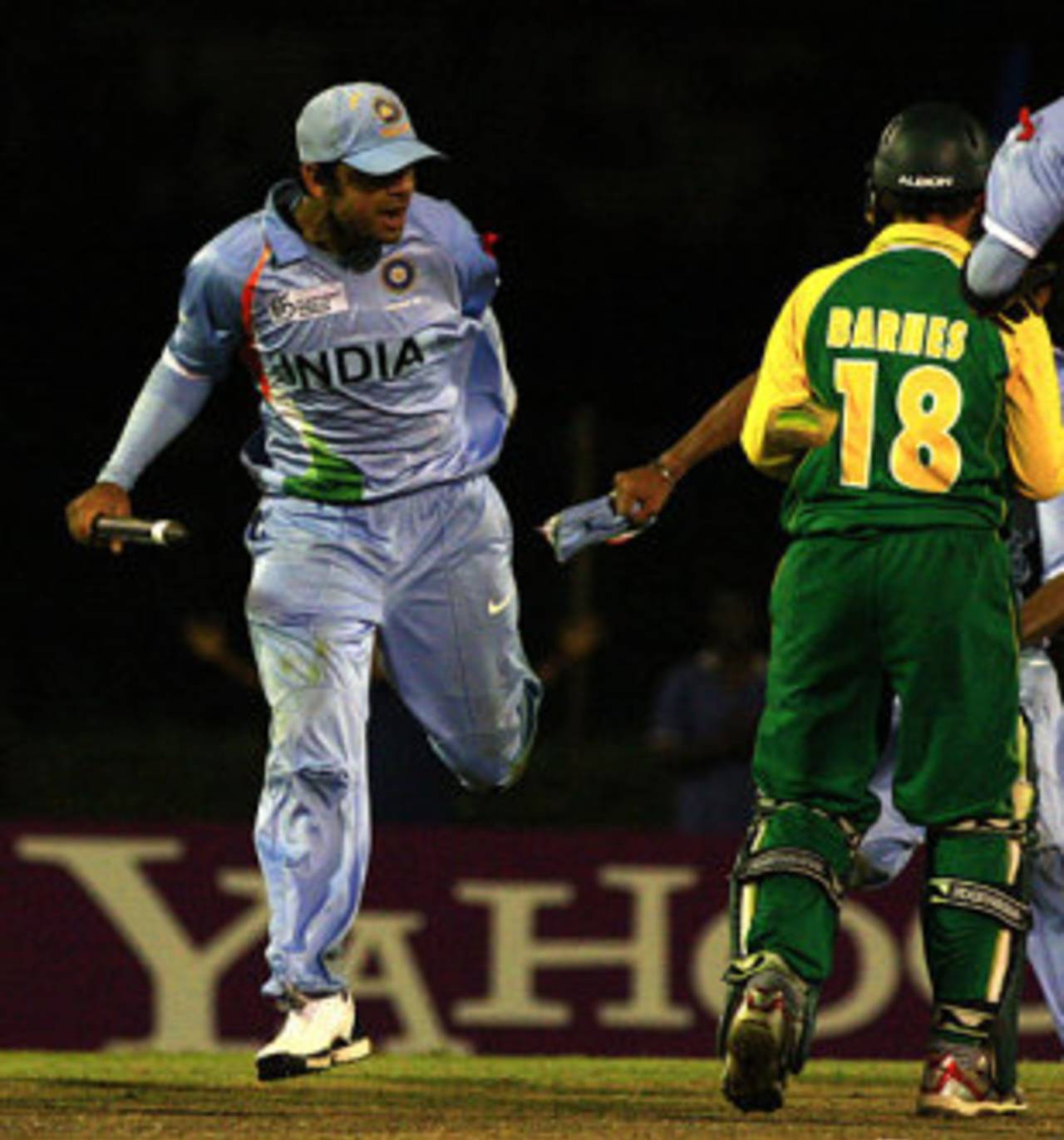With a stump in his hand Virat Kohli, clean-shaven then, gesticulated unsubtly and swore at the South Africans, who had just lost. That famous sight from the Under-19 World Cup final in 2008 didn't endear Kohli to observers, who thought him ungracious in victory, and that such a reaction was pretty rich from someone who was yet to achieve much in cricket.
In a recent interview on Star Cricket, a stubbled Kohli relived the moment: "The whole South African team was sitting there, and I purposely showed it to them," he said. "Because during the break they were playing football and were relaxed as if they had come for a picnic. [India had been bowled out for 159]. The wicketkeeper said that they had sent India packing. That was one thing that really disturbed us in the mind, and everyone was massively aggressive." Moral of the story: grace or no grace, the U-19 World Cup is no picnic.
Not even after you have bowled the opposition out for 159 in the final. Not in a country such as India, where U-19 years ago overtook first-class competitions as a source of international players. Not in this day and age, when a 20-ball 50 in the semi-final of the tournament could be worth a big-money contract in the IPL.
Kohli won't be in New Zealand over the next fortnight, nor will Bradley Barnes, the keeper who thought India had been sent packing. Instead it will be a fresh bunch of kids - barely out of school.
Sons of legends, sons of nobodies, sons of Afghanistan, sons of the Caribbean will all find something for themselves, and will all be by themselves.
Last year Umar Akmal, in his first series in international cricket, in Sri Lanka, tried to steal an overthrow off a ricochet off his body. Mahela Jayawardene and Kumar Sangakkara, almost more experienced in cricket than Akmal was in life, pounced on the boy to teach him a lesson in cricket gamesmanship. To the rescue came Akmal's batting partner, Shahid Afridi. There won't be any babies in the 16 teams in New Zealand. There will be no pre-assigned bullies, no pre-assigned rescuers. All will be babies, all will be men.
It won't be an end in itself, just the start of a journey, an education. They will, for instance, learn what doping is, and which pills given by momma can end their careers. They'll learn the art of mindlessly saying politically correct things in press conferences, an integral part of a modern sportsman's life. Many of them will be travelling out of their countries for the first time. Most still live with their parents. A few will come back and soon find themselves with enough money to buy their houses for their parents, without yet having gone to college.
Almost everything in cricket manages historical resonance. More than 22 years ago, months before the first Youth World Cup was played, Abdul Qadir was trying to pull off an improbable chase against Australia in the 1987 senior
World Cup semi-final. Craig McDermott was there to make sure no such heist was successful, leaving Qadir stranded on 20 off 16 balls and running through the rest. There's every chance Alister McDermott and Usman Qadir, their sons, might come face to face here in a knockout match.
There is every chance the two boys may not know of the space in history their fathers shared, but Manan Sharma has grown up with history. His father, Ajay Sharma, is not remembered as the Ranji Trophy giant he was, but as someone who was banned for life for match-fixing. Manan said that when he was growing up, his father used to watch him play from a far corner of the ground and leave quietly. In a fortnight he could give his father better memories to remember the game by. Not a picnic.
This World Cup will belong as much to the Sharmas, the Qadirs, the McDermotts, the Bracewells, the Marshes, the Buchanans, as it will to Noor-ul-Haq and his Afghan team-mates. At 17, he has already fled war, been a refugee in Pakistan, and somewhere along the way picked up cricket. Afghanistan's mere qualification for a big world event is a matter of fascination. The tournament will belong as much to West Indies and Zimbabwe, two teams whose success could give hope to those who feel heartbroken at the downfall of their senior teams.
In two weeks' time, after having gone through a maze of the fixtures, having witnessed play-offs for ninth place, 12th place, 15th place, we will see new champions crowned at the Bert Sutcliffe Oval, a quaint university ground about a 50-minute bus ride from Christchurch. Don't go by the stunning green all around, the picket fence, the grass bank, the college kids. It'll be no picnic.
Sidharth Monga is a staff writer at Cricinfo
